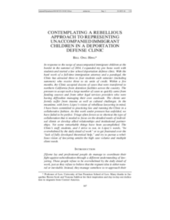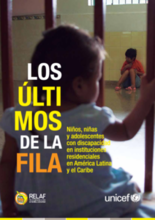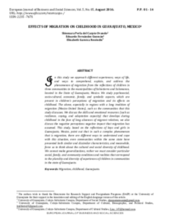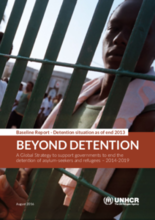Displaying 261 - 270 of 379
Bill Ong Hing shares his experiences on running a law school deportation clinic in California.
In this editorial, Laura Brigs discusses the issues that children face while attempting to apply for refugee status in the United States
Este informe, presenta los resultados de ese estudio, examina las condiciones en que se encuentran los niños y los adolescentes con discapacidad en relación con el ejercicio de sus derechos, y propone algunas líneas de acción estratégica para mejorar las políticas y las prácticas en dirección a la garantía y la restitución del derecho de todos los niños, las niñas y los adolescentes a crecer en un ámbito familiar y comunitario, y sin discriminación.
Using the stories and reflections of boys and girls in Guanajuato, Mexico, this study points out how with migration, there are different ways to understand and cope with the issues that surround migration.
Global Strategy – Beyond Detention 2014-2019 is a document released by UNHCR, which aims to support governments to end the detention of asylum-seekers and refugees.
In this New York Times article, Julie Hirschfeld Davis reports that President Obama recently announced plans to extend its current refugee program to admit Central American Refugees into the United States.
In this New York Times opinion piece, Kristof discusses one family’s story about the abuses they experienced while living in Honduras. His article highlights the dangers families are facing in Central America. He discusses how President Obama’s deportation policies are forcing families to stay in countries where their lives are at risk, and he argues that U.S. policies need to change in order to provide a safe haven for children and families at risk.
This Op-Ed piece from the New York Times offers harsh criticism of the U.S. and Mexican policy that sends young refugees back to the communities they are risking their lives to escape.
The aim of the present paper is to systematically review the empirical studies that have analyzed the associations between poverty and cognitive development in children under 18 years of age from Latin American and Caribbean countries between 2000 and 2015.
This paper examines the immigration of children from Central America to the USA by setting the context of immigration across the USA–Mexico border, reviewing the extent and causes of the influx in immigration, and detailing the political, legal, and social work responses to the child migrants.




